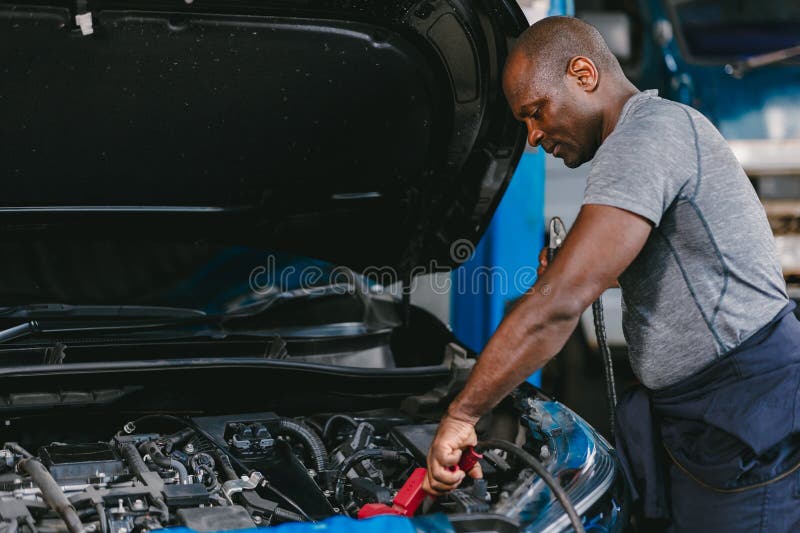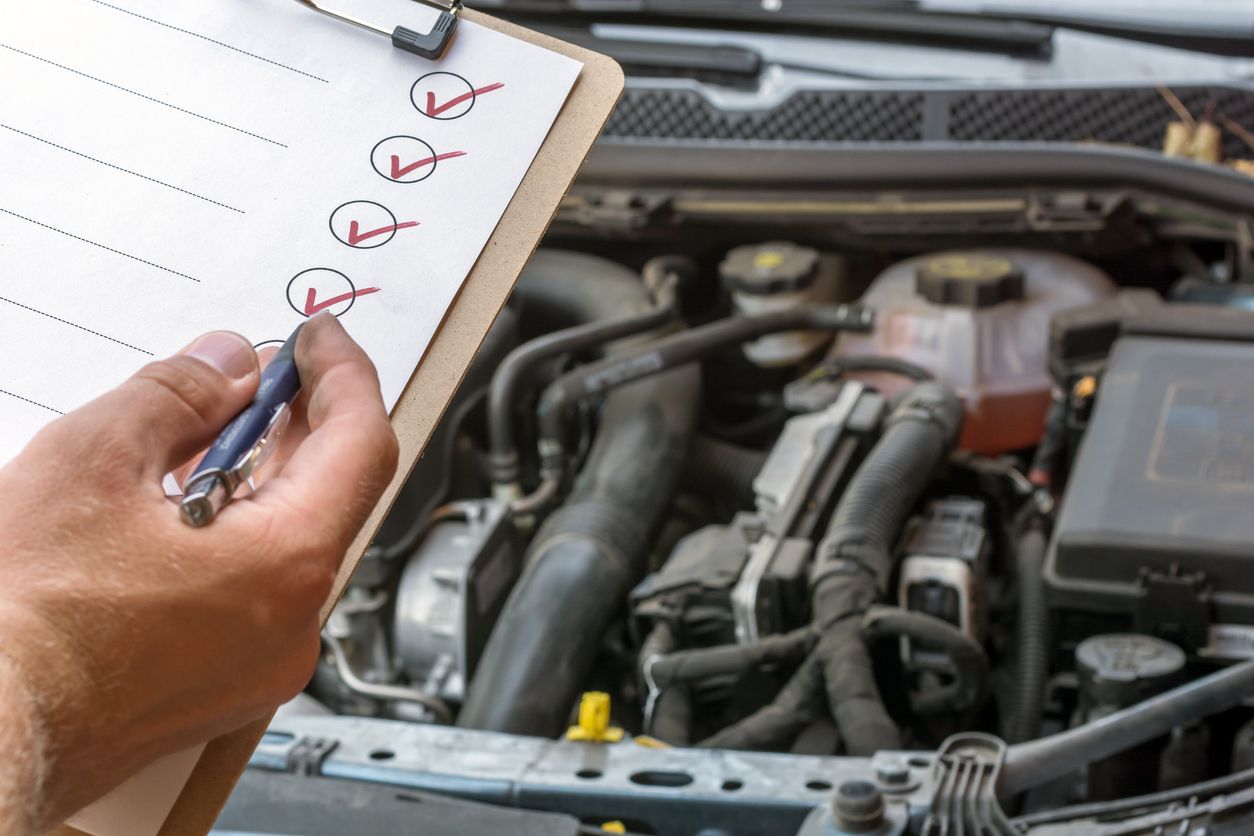All Categories
Featured
Your vehicle's engine is an intricate piece of machinery that needs regular treatment to operate successfully. By taking preventive actions, you can maintain your engine running efficiently and stay clear of considerable costs.
Engine oil lubes inner parts, lowering rubbing and wear. Change the oil and oil filter as recommended by your car's manufacturer-- usually every 5,000 to 7,500 miles for contemporary automobiles. Making use of the ideal sort of oil is equally crucial; consult your proprietor's handbook to make certain compatibility with your engine.
The engine's cooling system protects against getting too hot, which can cause extreme damages. Examine coolant levels often and fill up as needed. Furthermore, adhere to the manufacturer's standards for flushing and changing coolant to keep the system functioning effectively.
![]()
Engines call for a stable circulation of tidy air for combustion. A blocked air filter can minimize fuel efficiency and efficiency. When it appears dirty or after getting to the mileage defined in your vehicle's maintenance routine., examine the air filter regularly and replace it.
Weird sounds, reduced efficiency, or control panel warning lights typically signal underlying engine concerns. Address these caution indicators quickly by seeking advice from a certified technician to diagnose and fix issues prior to they rise.
Gas high quality directly impacts engine health. Usage fuel with the appropriate octane ranking for your vehicle to avoid knocking and deposits in the burning chamber. Periodically, including a gas injector cleaner can additionally assist preserve a tidy fuel system.
Flicker plugs are important for stiring up the air-fuel blend in the engine. Damaged trigger plugs can cause misfires, inadequate fuel economic situation, and raised discharges. Follow your car's maintenance routine to replace them at the recommended intervals.
![]()
Aggressive driving, such as rapid velocity and tough braking, places added stress and anxiety on your engine. Preserve steady speeds and method smooth driving practices to decrease unnecessary damage.
![]()
Broken or worn hoses and belts can result in getting too hot or various other engine failures. Evaluate these elements on a regular basis and change them if you discover any signs of wear, such as fraying or splits.
Dust and debris can hurt engine elements over time. Ensure all seals are intact and that the air consumption system is without blockages. Routine checks can prevent contaminants from causing damage.
Even if your vehicle appears to be running well, routine evaluations by a relied on technician can discover covert issues. An expert can recognize wear-and-tear issues early, saving you from pricey fixings down the line.
By adhering to these safety nets, you can prevent the stress and expenditure of significant engine repairs. Regular interest and treatment not only keep your automobile dependable yet additionally improve its resale worth and general efficiency.
- Maintain the Oil System
Engine oil lubes inner parts, lowering rubbing and wear. Change the oil and oil filter as recommended by your car's manufacturer-- usually every 5,000 to 7,500 miles for contemporary automobiles. Making use of the ideal sort of oil is equally crucial; consult your proprietor's handbook to make certain compatibility with your engine.
- Refill and check Coolant On a regular basis
The engine's cooling system protects against getting too hot, which can cause extreme damages. Examine coolant levels often and fill up as needed. Furthermore, adhere to the manufacturer's standards for flushing and changing coolant to keep the system functioning effectively.

- Display Air Filters
Engines call for a stable circulation of tidy air for combustion. A blocked air filter can minimize fuel efficiency and efficiency. When it appears dirty or after getting to the mileage defined in your vehicle's maintenance routine., examine the air filter regularly and replace it.
- Look Out to Indication
Weird sounds, reduced efficiency, or control panel warning lights typically signal underlying engine concerns. Address these caution indicators quickly by seeking advice from a certified technician to diagnose and fix issues prior to they rise.
- Use High-Quality Fuel
Gas high quality directly impacts engine health. Usage fuel with the appropriate octane ranking for your vehicle to avoid knocking and deposits in the burning chamber. Periodically, including a gas injector cleaner can additionally assist preserve a tidy fuel system.
- Change Spark Plugs on Time
Flicker plugs are important for stiring up the air-fuel blend in the engine. Damaged trigger plugs can cause misfires, inadequate fuel economic situation, and raised discharges. Follow your car's maintenance routine to replace them at the recommended intervals.
- Prevent Harsh Driving Practices

Aggressive driving, such as rapid velocity and tough braking, places added stress and anxiety on your engine. Preserve steady speeds and method smooth driving practices to decrease unnecessary damage.
- Examine Pipes and belts

Broken or worn hoses and belts can result in getting too hot or various other engine failures. Evaluate these elements on a regular basis and change them if you discover any signs of wear, such as fraying or splits.
- Avoid Contaminants from Getting In the Engine
Dust and debris can hurt engine elements over time. Ensure all seals are intact and that the air consumption system is without blockages. Routine checks can prevent contaminants from causing damage.
- Schedule Regimen Examinations
Even if your vehicle appears to be running well, routine evaluations by a relied on technician can discover covert issues. An expert can recognize wear-and-tear issues early, saving you from pricey fixings down the line.
By adhering to these safety nets, you can prevent the stress and expenditure of significant engine repairs. Regular interest and treatment not only keep your automobile dependable yet additionally improve its resale worth and general efficiency.
Latest Posts
Laminate Flooring: Style Fulfills Sturdiness at Carpet Interiors Floor & Home
Published Apr 20, 25
2 min read
Classy, Durable Tile Floor Covering for every single Area
Published Apr 20, 25
1 min read
Transform Your Home with Sturdy Wood Floor Covering from Carpet Interiors Floor & Home
Published Apr 20, 25
1 min read
More
Latest Posts
Laminate Flooring: Style Fulfills Sturdiness at Carpet Interiors Floor & Home
Published Apr 20, 25
2 min read
Classy, Durable Tile Floor Covering for every single Area
Published Apr 20, 25
1 min read
Transform Your Home with Sturdy Wood Floor Covering from Carpet Interiors Floor & Home
Published Apr 20, 25
1 min read